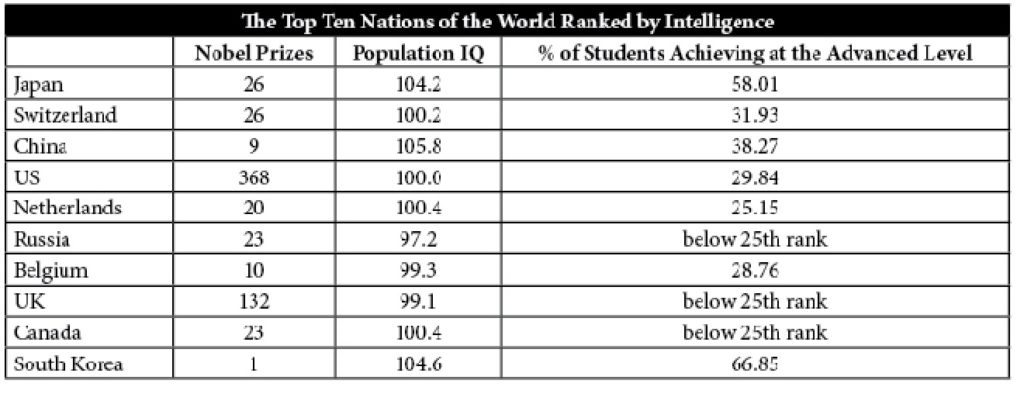In the mid-1970’s, I was teaching a graduate course in number theory at the University of Toronto. About one-third of my fifty students were Chinese from Hong Kong. These students were significantly better in their mastery and application of number theoretic concepts than most of the others. It was one of my earliest encounters with Chinese students in such a large group and I conjectured that Chinese students have either a cultural or a genetic advantage in their ability to do mathematics. Seeking insight into the source of this superiority, I approached my most outstanding Chinese student and asked, “Mr. Wong, may I chat with you for a few minutes?”
“Oh, yes sir…is there a problem?”9 he asked in a musical Chinese dialect, somewhat fearful that he had violated some unknown protocol.
“No, Mr. Wong, but you received a perfect score on the last two tests and several of your colleagues from Hong Kong also scored very high. I’m interested in discovering the secret of this high performance. Do students in Hong Kong study number theory in high school?”
“Oh no, sir,” he replied, with some relief and a receptive smile, “no number theory taught in Hong Kong schools.”
“Then how is it that students from Hong Kong perform so well in number theory?” I asked, still searching for some insight.
“Oh, that easy, sir. All students in Hong Kong take math exam at end of grade three. Half pass, half fail. Half pass go on to grade four.”
Interrupting, I said, “You mean third year high school students?”
“No, grade three, little squirts,” he replied, gesturing with his hand outstretched four feet above the ground, as if measuring the height of a grade three student. Then, he continued, “At end of grade four, all students in Hong Kong take math exam. Half pass, half fail. Half pass, go on to grade five. And this go on all the way up to end of high school. Then, at end of high school, all students in Hong Kong take math exam. Half pass, half fail…”
Anticipating the pattern, I interjected, “Ah, I get it, the half that pass come over here and we have a rarefied sample…”
“No,” he asserted, “Half pass stay Hong Kong; half fail, come over here.”
My assumption that the Chinese from Hong Kong had a cultural or genetic advantage in mathematics was a consequence of survivorship bias. The students from Hong Kong that I saw on a regular basis were continuously impressing me with their talent for mathematical thinking. Furthermore, I was looking only at those who had survived ten years of culling and not at the full data set, i.e., the population that includes also the students who were culled. If, indeed, half the population of students was culled each year, my sample was approximately 0.2% of the original group of students. This certainly represented a more stringent culling than that experienced by the other students in my class, so comparisons between the two groups were meaningless.
[The above account is an excerpt from https://www.intelligence-and-iq.com/intelligence-iq-perception/]
Though this excerpt may explain why Asians might seem to be better at mathematics and physics, it does not address the question, “How does the national average intelligence of the Asian countries compare with the national average intelligence of the Western countries? According to a report on Forbes at https://www.forbes.com/sites/duncanmadden/2019/01/11/ranked-the-25-smartest-countries-in-the-world/?sh=5b41e96f163f the American population ranks 4th in intelligence among all the nations of the world. The intelligence ranking of each nation was based on three factors: the number of Nobel Prize winners, the average IQ score for the population, and school achievement test scores. While the US led in Nobel Prize winners (368) by a huge margin, its population IQ of 100 is lower than 27 other nations. Furthermore, international studies like PISA and TIMSS have ranked American schools at 13th place.
By combining the scores on these three components, the study ranked the national populations by intelligence. The table below shows the rankings with Japan at the top and the US in 4th place.

The troubling fact for America is that the Nobel Prize rating in which it dominates is mainly a measure of the past. The population IQ is a measure of the present, and the quality of student achievement is a harbinger of the future. America is loosing its previous dominance as the intellectual leader in the world. This is also evident in the QS World University Rankings where Asian universities are emerging above Yale, Columbia, and Princeton. Asia is moving upward in the area of education and America is in a gradual descent. In international studies of student achievement at the highest levels, the top 5 nations were: Singapore, South Korea, Hong Kong, Taiwan, and Japan–all countries in Asia.
Some people argue that these comparisons that rank populations by average intelligence don’t compare the best-and-brightest in each nation. However, the Asians outperform most Western countries in math and physics olympiads. Is this proof of intellectual superiority?
